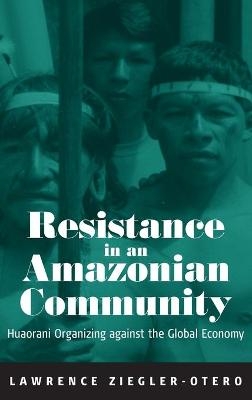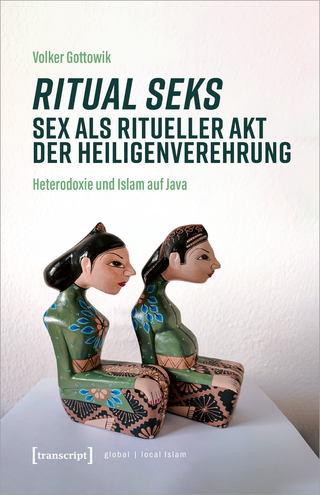
Resistance in an Amazonian Community
Huaorani Organizing against the Global Economy
Seiten
2004
Berghahn Books, Incorporated (Verlag)
978-1-57181-448-7 (ISBN)
Berghahn Books, Incorporated (Verlag)
978-1-57181-448-7 (ISBN)
In 1991 the Huaorani people of eastern Ecuador followed the lead of other indigenous populations and formed a political organization to confront threats to their territory and autonomy posed by oil companies, missionaries, and state agencies.
Like many other indigenous groups, the Huaorani of eastern Ecuador are facing many challenges as they attempt to confront the globalization of capitalism in the 21st century. In 1991, they formed a political organization as a direct response to the growing threat to Huaorani territory posed by oil exploitation, colonization, and other pressures. The author explores the structures and practices of the organization, as well as the contradictions created by the imposition of an alien and hierarchical organizational form on a traditionally egalitarian society. This study has broad implications for those who work toward "cultural survival" or try to "save the rainforest."
Like many other indigenous groups, the Huaorani of eastern Ecuador are facing many challenges as they attempt to confront the globalization of capitalism in the 21st century. In 1991, they formed a political organization as a direct response to the growing threat to Huaorani territory posed by oil exploitation, colonization, and other pressures. The author explores the structures and practices of the organization, as well as the contradictions created by the imposition of an alien and hierarchical organizational form on a traditionally egalitarian society. This study has broad implications for those who work toward "cultural survival" or try to "save the rainforest."
A native of Pennsylvania, Lawrence Ziegler-Otero teaches in the Department of Anthropology at SUNY Plattsburgh. After a "first career" as a trade union organizer in the United States, he became an anthroplogist in order to study political, labor and indigenous organizations. He has also lived and worked in Ecuador and Puerto Rico.
Acknowledgements
Introduction
Chapter 1. History and Background
Chapter 2. Onhae: Structures and Achievements
Chapter 3. Practice and Praxis: Onhae in Action
Chapter 4. Toward an Organizational Evaluation
Chapter 5. Conclusion
Works Cited
Index
| Erscheint lt. Verlag | 19.8.2004 |
|---|---|
| Verlagsort | Herndon |
| Sprache | englisch |
| Maße | 152 x 229 mm |
| Gewicht | 336 g |
| Themenwelt | Sozialwissenschaften ► Ethnologie ► Völkerkunde (Naturvölker) |
| Sozialwissenschaften ► Politik / Verwaltung | |
| Sozialwissenschaften ► Soziologie | |
| ISBN-10 | 1-57181-448-5 / 1571814485 |
| ISBN-13 | 978-1-57181-448-7 / 9781571814487 |
| Zustand | Neuware |
| Haben Sie eine Frage zum Produkt? |
Mehr entdecken
aus dem Bereich
aus dem Bereich
Schweden : Ambiguitäten verhandeln - Tolerieren als soziale und …
Buch | Softcover (2023)
Brill Schöningh (Verlag)
49,90 €
Buch | Softcover (2023)
transcript (Verlag)
54,00 €


